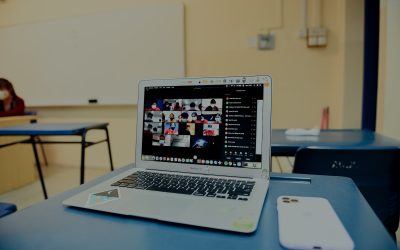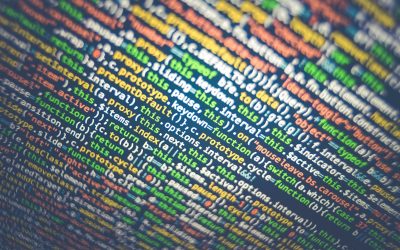The Linux Foundation are well known in the open source community.
Aside from the enormous growth of Linux, the Linux Foundation has fostered innovation across a broad of different industries including the cloud (Cloud Native Computing Foundation), motion picture arts (Academy Software Foundation), energy (LF Energy), blockchain (Hyperledger), automative (Automotive Grade Linux), community analytics (CHAOSS), and many others.
Given this history, I am both thrilled and not terribly surprised that the Linux Foundation has wanted to wade into the global fight against COVID-19. Back in April they helped support displaced developer interns with a mentorship program, but today’s announcement goes a step further.
Today they launched a new initiative to use open source to help public health authorities (PHAs) around the world with the fight with COVID-19 and future epidemics.
Rather snappily named Linux Foundation Public Health, the project is currently focused on two hosted exposure projects:
- COVID Shield was developed by an engineering and design team at Shopify as a volunteer effort to combat COVID-19. It provides a notification system built on top of the exposure notification APIs that Google and Apple have developed to support COVID contact tracing. Canada is deploying COVID Shield nationwide with an implementation by the Canadian Digital Service and several US States are exploring the technology too.
- COVID Green is the code that has been driving Ireland’s contact tracing, and was developed by a team at NearForm. Since being deployed in Ireland two weeks ago has achieved a rather impressive adoption of over 1/3rd of the country’s adults.
Given the continuing rise of cases in the US and elsewhere, these and other technologies are going to be critical to understanding and managing the epidemic.
I am thrilled to see organizations coming together to collaborate on this, and just like any other Linux Foundation project, there are a series of commercial premier sponsors. This currently includes Cisco, doc.ai, Geometer, IBM, NearForm, Tencent, and VMware, and I suspect others will sign on too.
My Take
I am really excited about Linux Foundation Public Health for a number of reasons.
Firstly, open source is an incredible model for pull together large groups of engineers and contributors from different companies, countries, and areas of expertise to work on a common problem. The Internet is littered with examples of this, and especially with the global pandemic. Just take a look the John Hopkins University work and New York Times case tracking, the Folding@Home processing work, and Nextstrain’s real-time pathogen tracking, as just a few examples.
Building open source is complex though. It requires a careful mixture of open workflow, infrastructure, governance, and more. This can often overwhelm individual companies, and I credit the Linux Foundation for much of the reason why so many large companies in very different industries have been able to understand and invest in collaborative open source projects.
Of course, our broader open source community has been successful due to the many contributions of many people and organizations, but the Linux Foundation helped to frame the somewhat wild west of open source into a model that the commercial world could understand. This was and continues to be a hard nut to crack, especially with large, entrenched, and very traditional companies flirting with the idea of “this open source thing.”
Secondly, and on a related note, building these projects to help conquer COVID-19 isn’t just about building code. It will require fostering relationships with government agencies and universities, coordinating testing programs, working with scientists and organizations to understand and share the results, and more.
Often the hardest element of building open source is getting it deployed into the hands of your audience, and this is especially complex for these kinds of specialized yet broad-market projects. I think the LFPH will provide a place to consolidate key resources, expertise, and other ingredients needed for success.
Thirdly, Dan Kohn is the General Manager at LFPH. Now, for those of you who don’t know Dan, he ran the Cloud Native Computing Foundation until Priyanka Sharma recently stepped into the General Manager role.
Now, the success of the CNCF is well documented in the open source cloud industry. I credit a significant portion of this success to Dan: the guy is an absolute machine. He is able to build incredibly comprehensive workflow and processes to pull different members, developers, and contributors together and he can balance an astonishing level of data and detail in how he does this work. This new healthcare project will really benefit from Dan’s involvement.
So, overall, I am pretty excited for this new initiative. We need all hands on deck with COVID-19 and I am thrilled to see the Linux Foundation doing what they do to help with the effort.
So, get out there, write some code, wear a mask, and keep washing your hands. As we have seen countless times elsewhere in open source, we are more powerful together.
Oh, and just you skipped over it, wear a mask. Please, folks, wear a bloody mask. It isn’t rocket science. 🙂








